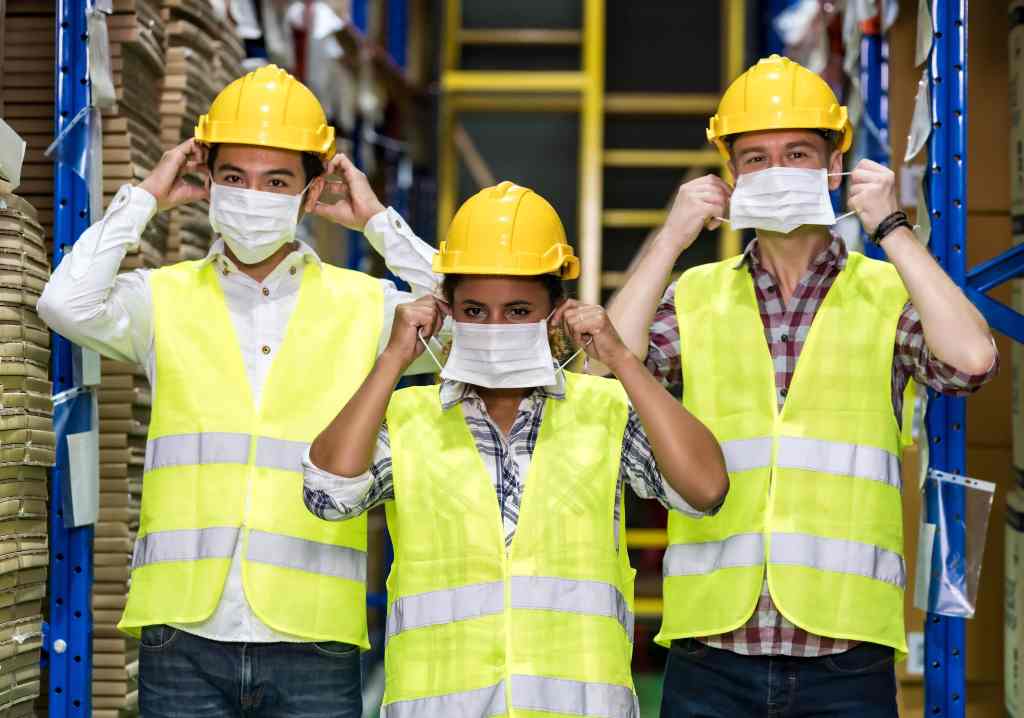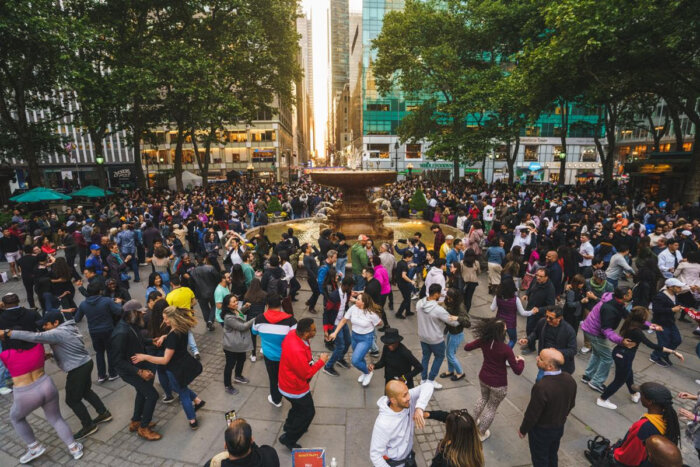After the coronavirus pandemic hit, Anne Shybunko-Moore, CEO of Hauppauge-based aviation and aerospace engineering and manufacturing company GSE Dynamics Inc., saw her company quickly declared essential and had to figure out how to move forward.
She wrote workers’ names on sheets of paper, placed them on the conference table, and divided them into two groups: those who could work remotely and those who would work on-site.
While healthcare workers were on the front line and those providing food were crucial, others that were deemed essential workers, including many manufacturers, found themselves adjusting rapidly.
“This was new for everyone,” Jeffrey Reingold, COO of Contract Pharmacal Corp,. in Hauppauge, said of a shift to an at least-temporary new normal. “There was no playbook.”
A handful of leaders of businesses that were declared essential recently got together via Zoom to trade notes and experiences at a virtual gathering sponsored by the Hauppauge Industrial Association of Long Island (HIA-LI) and moderated by Joseph Campolo, managing partner at Campolo, Middletown & McCormick in Ronkonkoma.
“There was a pride about being essential with a capital ‘E,’” Shybunko-Moore said of one immediate impact. “People were happy to still have a job, respectful of their peers. And there was pride in our industry.”
There was also a fear as companies declared essential put safety measures in place and sought to reassure workers.
“There was a vulnerability we all felt no matter where you were on the corporate echelon,” Shybunko-Moore added. “We were all concerned about one another.”
Campolo said manufacturers and their workers were often unheralded heroes of the pandemic.
“We were the Omaha Beach in Normandy of COVID,” Campolo said of New York. “We got hit like nobody’s business. Healthcare workers stepped up. Manufacturers do not get recognition the way some others do.”
Having to keep going put a lot of pressure on everyone from executives to workers amid the onset of COVID-19.
“This was probably the most stress I’ve ever had in my career,” Reingold said. “The stress level was through the roof.”
Shybunko-Moore said she commuted to Hauppauge in 15 minutes, far less than her usual commute, on a nearly empty road with no rush hour and an almost eerie emptiness around her.
“Even that emotionally was a surreal experience,” she added. “It’s hard to explain what it was like to go to work every day with my peer group while others were at home going through their own struggle.”
Some companies and projects were not deemed essential initially only to be reclassified as rules changed suddenly.
“We did get shut down,” Jim Coughlan, principal of East Setauket-based Tritec Real Estate said. “Then PPP came along and we didn’t have to lay anybody off. There were a couple of weeks at the beginning when there was a huge fear of that.”
Tritec staggered shifts and outfitted construction workers with devices on helmets, triggering alarms if they came within 6 feet of one another.
“If somebody did get sick, we could tell who they were next to and where they had been,” Coughlan said, noting that Tritec’s workers had no cases in New York, although there were some in Virginia.
Shybunko-Moore said her company’s work stations already were 6 feet apart from each other, although some employees shifted to work remotely.
Contract Pharmacal brought in temps to do temperature monitoring of workers arriving at work and after lunch. When one temp charged with taking temperatures didn’t arrive, Reingold improvised.
“I gowned up, got a thermometer,” said Reingold, who worked out of a conference room for six weeks. “I was taking temperatures for people to come in.”
Contract Pharmacal hired outside cleaning staff, brought in paper bag lunches with the food truck on hold, restructured lunch breaks, and set up tents outside the building.
Hauppauge-based Walkers Shortbread Inc. shifted to Microsoft Teams’ collaborative platform and limited face-to-face meetings and virtual meetings rather than telephone calls.
“It pushed us to have more virtual meetings with customers,” Walkers U.S. CEO Mark Kleinman said. “In the past, it was phone calls. Now it’s more commonplace to have virtual meetings with video. I think that will stick around.”
As more workers returned, companies had to monitor more people on-site, Reingold said. He added that he got to spend more time with family, with children home rather than busy with activities such as sports and dance.
“We expect there will be a second wave,” Coughlan added. “But we’re doing everything we can to prepare and be as safe as possible.”
Shybunko-Moore said manufacturing is resilient, but hopes companies don’t get complacent and drop precautions.
“We made a lot of great stuff during COVID,” Shybunko-Moore said. “We need to reinstate that pride we used to have, that Grumman pride. We should have manufacturing pride.”
For more business coverage visit longislandpress.com/category/business
Sign up for Long Island Press’ email newsletters here. Sign up for home delivery of Long Island Press here. Sign up for discounts by becoming a Long Island Press community partner here.



























